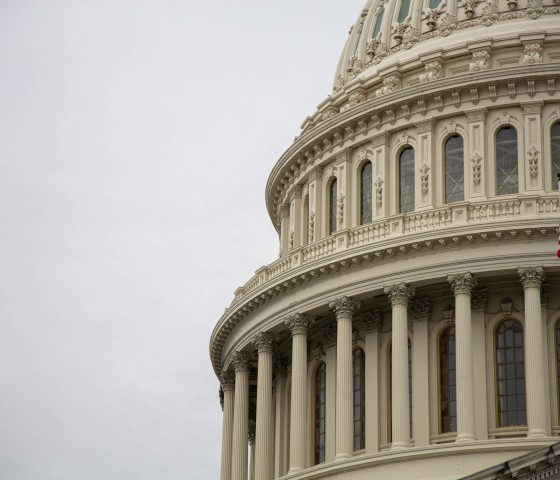COGR, representing over 200 U.S. research institutions, submitted comments urging the withdrawal of the proposed Interagency Guidance Framework for Considering the...
Intellectual Property & Innovation
Covering policies and practices for federally sponsored research, Intellectual Property and Innovation ensures discoveries and creative works are effectively protected, managed, and commercialized.

Featured
Technology Transfer in U.S. Research Universities: Dispelling Common Myths (Updated August 2022)
This document, published by COGR, systematically addresses and dispels common misconceptions about technology transfer activities within U.S. research universities...
The Bayh-Dole Act: A Guide to the Law and Implementing Regulations (October 2021 Update)
Originally published in 1999, and updated October 2021:
Resources
All Intellectual Property & Innovation Articles
COGR & AAU Submit Joint Comments in Response to Unlocking the Full Potential of Intellectual Property by Translating More Innovation to the Marketplace (Docket No. PTO-C-2024-004)
COGR and AAU, representing leading U.S. research universities, submitted comments to USPTO Director Kathi Vidal expressing agreement with AUTM’s positions and addressing key issues impacting university technology transfer and innovation commercialization. They voiced serious concerns about NIST's draft march-in rights framework, warning that its adoption could deter investment and harm patent lice
Federal March In Provisions & NIST Draft Framework: February 2024 Meeting
COGR's virtual meeting held from February 27 to March 1, 2024, featured expert discussions on federal policies affecting university technology transfer, focusing particularly on the National Institute of Standards and Technology (NIST) draft framework regarding march-in rights under the Bayh-Dole Act. The draft framework proposes using the pricing of commercial goods and services as a criterion fo
Biden EO on AI: Agencies Perspectives: February 2024 Meeting
The COGR virtual meeting held on February 27–March 1, 2024 focused on the Biden Administration’s Executive Order 14110 regarding artificial intelligence (AI), examining how federal agencies such as NIST and HHS are responding to its directives, and what challenges and opportunities lie ahead. The presentations outlined ongoing federal efforts to promote trustworthy, safe, and ethical AI developmen
Higher Education Associations Comments to NIST
A coalition of leading academic associations, including AAU, APLU, AAMC, ACE, AUTM, and COGR, submitted comments opposing the National Institute of Standards and Technology's (NIST) Draft Interagency Guidance Framework for Considering the Exercise of March-In Rights under the Bayh-Dole Act. They argue that the proposed framework introduces unnecessary ambiguity, focuses inappropriately on “reasona
COGR Submits Comments to NIST on Draft Interagency Guidance Framework for Considering the Exercise of March In Rights
COGR, representing over 200 U.S. research institutions, submitted comments urging the withdrawal of the proposed Interagency Guidance Framework for Considering the Exercise of March-In Rights under the Bayh-Dole Act. COGR argues that the Framework, particularly its consideration of product pricing as a trigger for march-in, would undermine successful technology transfer practices, deter industry p
COGR Joins a Multi-Association Extension Request to NIST for the RFI Regarding the Draft Interagency Guidance Framework for Considering the Exercise of March-In Rights (Docket No.: 230831-0207)
The letter, sent by major associations representing research universities and medical colleges, requests a 90-day extension to the public comment period on the National Institute of Standards and Technology's draft interagency guidance framework regarding the exercise of march-in rights under the Bayh-Dole Act. The organizations express concern that the proposed changes significantly depart from l
COGR Joins C4IP in Urging the Biden Administration to Oppose the Proposed WTO IP Waiver for Covid-19 Therapeutics and Diagnostics
The letter, dated December 4, 2023, is addressed to President Joseph R. Biden by the Council for Innovation Promotion, a bipartisan group comprised of former senior government officials, university technology transfer experts, and leaders from trade and health sectors. The signatories urge President Biden to oppose the World Trade Organization's proposed waiver of intellectual property (IP) r
COGR Submits Joint Association Response to OMB on Comment Request; iEdison System
The letter, submitted by COGR and other higher education associations, expresses strong support for the continued redesign, expansion, and harmonization of the iEdison invention reporting system across all federal agencies, as outlined in OMB Control No. 0693-0090. The associations highlight the benefits of uniform reporting requirements under the Bayh-Dole Act, including reduced compliance burden
COGR, AAU, and AUTM Submit Joint Association Letter on COVID-19 Diagnostics and Therapeutics: Supply, Demand, and TRIPS Agreement Flexibilities
The letter, submitted jointly by the Association of American Universities (AAU), the Council on Government Relations (COGR), and AUTM, addresses the U.S. International Trade Commission in relation to Investigation No. 332-596, focusing on COVID-19 diagnostics, therapeutics, and the possible expansion of the TRIPS Agreement waiver. The associations, representing leading American research universiti
COGR Submits Joint Comments with AUTM and Bayh-Dole Coalition to DOE on Exceptional Circumstances Determination
The letter addresses concerns from the Bayh-Dole Coalition and allied organizations regarding the U.S. Department of Energy’s (DOE) recent “determination of exceptional circumstances” (DEC), which aims to promote domestic development of DOE-funded inventions. While the coalition appreciates the DOE's efforts to prevent the off-shoring of strategically important technologies, it raises signifi



